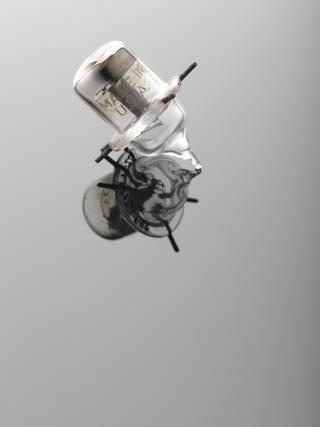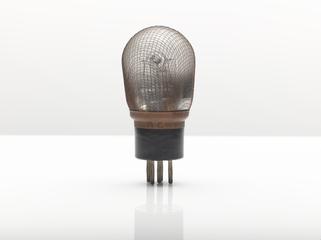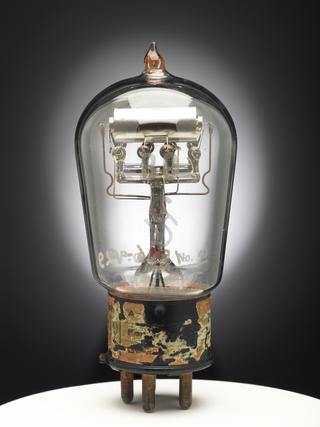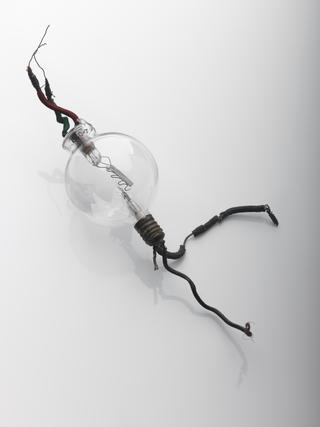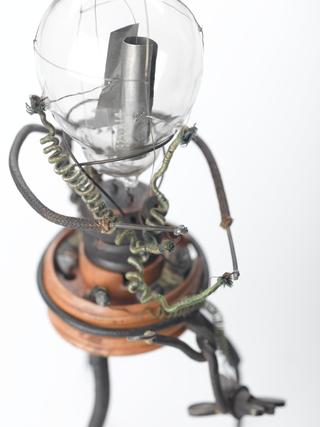
Transistor, early British Experimental Device from Pye Radio Research Labs

Transistor, early British Experimental Device from Pye Radio Research Labs, early 1950's
The transistor, invented by William Shockley, Walter Brattain and John Bardeen, was announced by Bell Telephone Laboratories in 1948, revolutionising the field of electronics. The transistor was the first solid-state device which could act as a switch or an amplifier, replacing the bulky, fragile and unreliable triode valves, first introduced in 1907. Intensive research refined the device, although it was several years before it became commercially available. These examples are early experimental British transistors and include both the original point-contact type and the more effective junction type.
